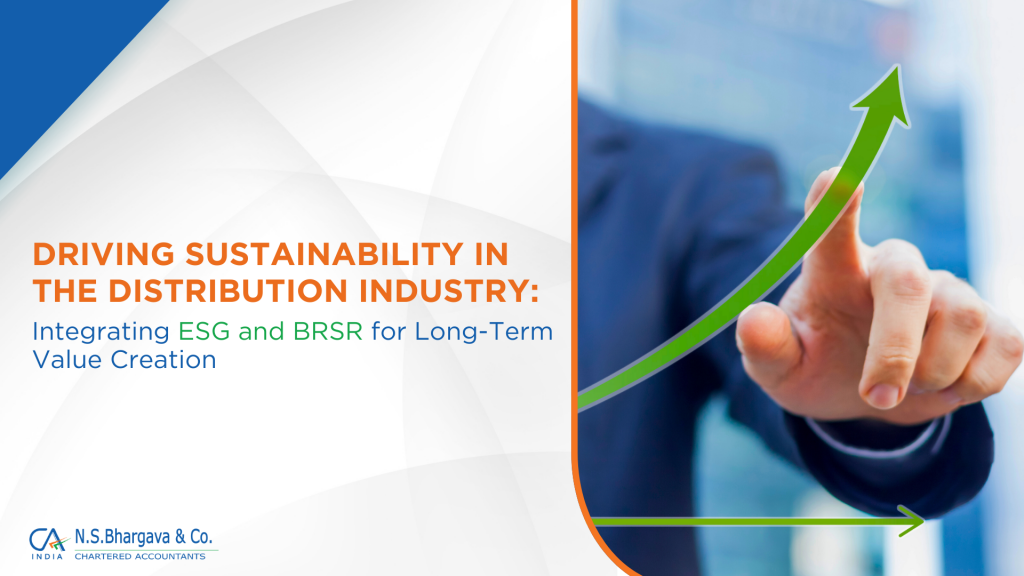
There has been a growing emphasis on sustainable business practices and corporate responsibility across various industries. Among these, the distribution industry plays a crucial role in the supply chain, connecting manufacturers with retailers and consumers. As environmental, social, and governance (ESG) considerations become increasingly important for investors and stakeholders, integrating them with Business Reporting on the Sustainable Development Goals (BRSR) offers a strategic approach for distribution companies to enhance their sustainability efforts while driving long-term value creation.
Interconnection with the Distribution Industry-
The distribution industry intersects with ESG and BRSR in several key areas:
1. Supply Chain Management: Distribution companies have a significant impact on the environment through their supply chain activities. By adopting sustainable procurement practices, reducing emissions in transportation, and optimizing packaging materials, they can minimize their carbon footprint and promote environmental stewardship.
2. Labor Practices: Ensuring fair labor practices within the distribution sector is crucial for promoting social equity and human rights. Companies can prioritize employee health and safety, provide fair wages and benefits, and support diversity and inclusion initiatives throughout their workforce.
3. Ethical Governance: Strong corporate governance is essential for maintaining trust and accountability within the distribution industry. Companies can enhance transparency, integrity, and ethical behavior by implementing robust governance structures, engaging with stakeholders, and adhering to responsible business practices.
In conclusion, the interconnection of ESG and BRSR with the distribution industry presents both challenges and opportunities for companies to enhance their sustainability practices and create long-term value. By embracing ESG principles, aligning with the SDGs, and integrating sustainability into core business strategies, distribution firms can foster resilience, innovation, and stakeholder trust in an increasingly complex and interconnected world.
Key Insights:
- Stakeholder Expectations: Investors, consumers, and regulators are increasingly scrutinizing companies' ESG performance. Distribution firms that proactively address ESG risks and opportunities are better positioned to attract investment, build brand reputation, and mitigate operational disruptions.
- Innovation and Collaboration: Embracing sustainability within the distribution industry requires collaboration across the value chain. Companies can leverage technology, data analytics, and partnerships to drive innovation, improve efficiency, and create shared value for stakeholders.
- Risk Management: Integrating ESG considerations into risk management processes is essential for identifying and mitigating potential risks, such as supply chain disruptions, regulatory non-compliance, and reputational damage. By understanding and managing these risks effectively, distribution companies can enhance resilience and long-term viability.
Way Forward:
Looking ahead, the future of sustainability in the distribution industry lies in:
Continuous Improvement: Companies should strive for continuous improvement in ESG performance by setting ambitious targets, tracking key metrics, and regularly reporting on progress. Embracing a culture of innovation and learning can drive sustainable growth and competitive advantage.
Engagement and Advocacy: Collaboration with stakeholders, including suppliers, customers, industry associations, and civil society organizations, is critical for advancing sustainability goals and driving systemic change. By engaging in dialogue, sharing best practices, and advocating for policy reforms, distribution companies can amplify their impact and contribute to broader sustainability efforts.
Transparency and Accountability: Transparency and accountability are fundamental principles of effective sustainability governance. Companies should enhance disclosure practices, communicate transparently about their ESG initiatives and performance, and hold themselves accountable to stakeholders for achieving meaningful progress.